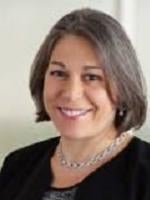The US Securities and Exchange Commission's Division of Enforcement announced that it will not recommend monetary penalties against investment advisers that self-report mutual fund share class violations involving Rule 12b-1 fees by June 12, 2018.
The US Securities and Exchange Commission’s Division of Enforcement (the Division) recently announced a Share Class Selection Disclosure Initiative (SCSD Initiative) under which investment advisers will not be subject to civil monetary penalties if they self-report mutual fund share class selection violations.1 The SCSD Initiative, announced February 12, follows on the heels of a number of published and pending enforcement actions alleging that advisers failed to adequately disclose conflicts of interest associated with recommending or selecting a share class that charged a Rule 12b-1 fee when a lower-cost share class of the same fund was available to clients.
Considerations for Participating in the SCSD Initiative
Eligible advisers should carefully weigh the relative benefits of participating in the SCSD Initiative in light of their particular circumstances. The following are certain factors advisers may wish to consider.
Adequacy of Disclosure. The potential violation under the Investment Advisers Act of 1940 (Advisers Act) begins and ends with the adequacy of the adviser’s disclosure around share class selection. Although some of the prior cases included charges that advisers failed to adopt and implement appropriate procedures to seek best execution in connection with share class selection, the Division has wisely dropped the best execution argument and the related violations of Advisers Act Section 206(4) and Rule 206(4)-7 from the standardized settlement terms (although the Office of Compliance Inspections and Examinations (OCIE) continues to cite this claim in current deficiency letters). As a result, advisers should start by reviewing and considering whether their disclosures going back to January 1, 2014 were sufficient to put clients on notice of the relevant conflicts of interest. The 2014 time period is based on the Division’s questionnaire for self-reporting advisers, which requests information about the receipt of Rule 12b-1 fees from January 1, 2014, to the date the conduct stopped.2
According to the Division, the disclosure must have “clearly described” the conflicts associated with (1) making investment decisions in light of the receipt of Rule 12b-1 fees and (2) selecting a more expensive Rule 12b-1 fee paying share class when a lower-cost share class for the same fund was available. Adequacy of disclosure in this area will turn on the facts, including the nature and operation of a given adviser’s program, the adviser’s fee arrangements, and the nature of provided disclosures (whether through Form ADV or other disclosures and agreements). If an adviser reasonably concludes that its disclosure was sufficient, there should be no need to self-report or reimburse clients for the receipt of Rule 12b-1 fees.
Best Interest to Invest in Lower-Cost Share Classes. The Division’s approach to the SCSD Initiative assumes that it will “usually” be in the client’s best interest to invest in an available share class that does not charge a Rule 12b-1 fee or charges a lower Rule 12b-1 fee. Advisers should consider whether this is actually the case. There are circumstances where a lower-cost share class may not be more appropriate or beneficial for a client; for example, if an adviser were able to demonstrate that the conversion from a higher to a lower share class would trigger negative tax consequences for clients, or where the account-level advisory fee takes into consideration the receipt of Rule 12b-1 fees such that lower Rule 12b-1 fee revenue will result in the adviser’s having to reprice its services and increase its advisory fees. We caution that advisers that argue that lower-cost share classes were not necessarily in their clients’ best interest should be able to substantiate their claims with documentation and analysis.
Remediation Methodology. The Announcement makes clear that advisers electing to participate in the SCDC Initiative will be required to disgorge their “ill-gotten” gains (i.e., the Rule 12b-1 fees), plus interest, but there is no discussion of the actual calculation methodology the Division will use, or whether that calculation methodology will be flexible enough to consider each adviser’s particular facts and circumstances. Given the lack of transparency about the remediation methodology (and the methodology accepted by the SEC in past settlements), advisers may have a difficult time assessing the financial impact of participating in the SCDC Initiative—we would be happy to share perspectives from our representations of other advisers in past SEC settlements.
FINRA Action. FINRA has recently indicated that firms that self-report and reimburse clients for the receipt of undisclosed Rule 12b-1 fees will receive “extraordinary cooperation” under the FINRA Rule 4530 self-reporting requirements. In addition to participation in the SCDC Initiative, dual registrants and affiliated broker-dealers should also consider their FINRA self-reporting obligations.
Collateral Consequences. Advisers should evaluate the collateral consequences associated with participating in the SCDC Initiative. While the standardized settlement terms are more narrowly tailored than the prior Municipalities Continuing Disclosure Cooperation Initiative, the Division did not rule out sanctions, including cease-and-desist orders, that create possible statutory disqualifications.
Participation and Standardized Settlement Terms
In order to participate in the SCDC Initiative, an adviser must notify the Division of its intent to self-report by 12:00 am EST on June 12, 2018, and must submit the completed Reporting Questionnaire within 10 business days of its notification to the Division. The Reporting Questionnaire requests information about the amount of Rule 12b-1 fees in excess of the lower-cost share class that the adviser and its supervised persons and affiliates received, going back to January 1, 2014.
An adviser that participates in the SCSD Initiative would be eligible for standardized settlement terms that include the institution of an administrative and cease-and-desist proceeding for violations of Advisers Act Sections 206(2) and 207, as well as a censure, disgorgement and prejudgment interest, and compliance with a series of undertakings that require the adviser to
- review and enhance its disclosures;
- evaluate whether existing clients should be moved to a lower-cost share class and move clients as necessary;
- evaluate, update, and review the effectiveness of the implementation of policies and procedures relating to disclosures regarding mutual fund share class selection;
- ·notify affected clients of the settlement terms in a clear and conspicuous fashion; and
- provide the SEC Staff with a certification regarding compliance with these undertakings.
Importantly, the Division would not recommend civil monetary penalties to the SEC in the case of investment advisers that self-report. Eligible advisers would be required to return Rule 12b-1 fees, plus interest, to affected clients; however, the advisers would not be subject to civil monetary penalties in addition to the amount of the disgorgement.
Eligibility Requirements
Participation in the SCSD Initiative is subject to the following limitations.
- Investment advisers that were contacted by the Division regarding possible mutual fund share class disclosure violations prior to February 12, 2018, are not eligible to participate in the SCDC Initiative. Advisers that are subject to related OCIE examinations but have not been contacted by the Division are eligible to participate.
- In addition, the SCDC Initiative is limited to the receipt of Rule 12b-1 fees in connection with investments made on behalf of advisory accounts. It does not appear to extend to shareholder servicing fees or the receipt of other types of revenue that may present similar conflicts of interest. According to the Announcement, the “SCDC Initiative is limited to the conduct described in this announcement, and does not concern other (possibly similar or related) conduct (e.g., where one share class is higher-cost than another share class but neither share class pays a 12b-1 fee or where the adviser has no formal conflict of interest).” The Division notes that self-reported conduct outside the scope of the SCDC Initiative would be evaluated on a case-by-case basis.
- The SCDC Initiative is designed to cover only eligible advisers. The Division is not offering any assurances with respect to individuals associated with advisers that may have engaged in misconduct.



 />i
/>i

